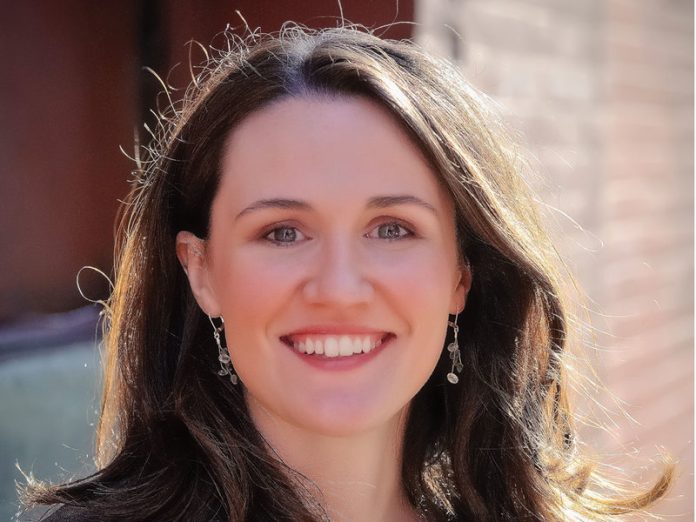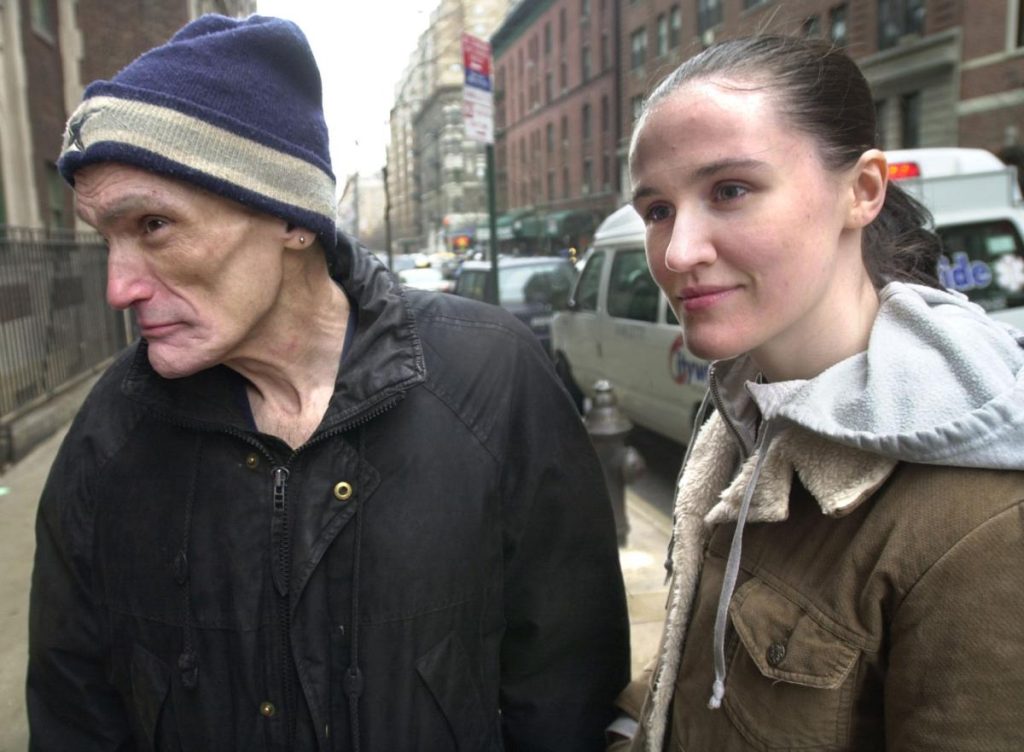
Homeless To Harvard: Liz Murray Shows How Our Choices Become Our Future
Date:

Share post:
“Anything that is within someone else’s reach is also within yours. Set your goals no matter how impossible they may seem. Then focus on what is between you and that goal. And then, simply take out the obstacles as they come.”
You have to trust this philosophy when Elizabeth Murray a.k.a Liz Murray preaches it. After all, this has dictated her life choices, and taken her from being a homeless girl of hard-core drug-addict parents to getting admitted into arguably the most prestigious educational institute of the world- Harvard. Murray’s story is not any rags to riches fantasy. Nor is it a case of accidental fame. If anything, she is living proof of the belief that your present circumstances do not dictate who you are, or who you will be. It is you, and your ability to make choices; choices that make all the difference in your life.

Liz Murray was born and brought up in the roughest part of the Bronx, infamous for its squalid environment. Her father was a committed drug-addict, and soon her alcoholic mother also resorted to it. They were too occupied by their fixation to provide for Liz, and her younger sister. Forget about basic comforts, Liz, as a six-year-old and her baby sister, Lisa had to knock doors every night to ask for leftover food to feed themselves. “My sister and I were very dirty and had lice in our hair,” she says. “Our teachers at school were suspicious about our situation and called the Bureau of Child Welfare. But my sister and I got very good at preparing for these visits.” They were coached by her parents to pretend that though poor, they were not neglectful of their children. During every visit Liz and her parents would make up stories to justify her abnormal absence from school; and funnily enough, they were never suspected. In reality, instead of school classrooms, Liz spent her day watching her parents inject syringes into their veins, snort stuff, merrily empty liquor bottles, and pass out.
When she became about 9, she decided to become self-reliant. It is astonishing that the toxic environment did not claim her senses, but worked contradictorily making her mature beyond her age. At 9 Liz decided that she would never make choices her parents made and that she wouldn’t end up like them- disrespected, unloved, and unneeded. She took up odd jobs in gas stations and supermarkets that fetched about $20-$25 a day. She’d use that money to buy fresh grocery supplies. It was her first taste of independence, and hard work and she loved every moment of it. In order to escape the grim situation at home, Liz found herself a perfect coping mechanism for sanity. She’d lock herself to her room, and read for long hours the books that she borrowed from the public library for free. Hence, even though she remained absent for most of the year in school, she’d still graduate to the next class as a rank-holder.
Things became worse in 1990 when Liz was about 10. Her mother was diagnosed with AIDS. Her mother and sister were sent to her godfather while she stayed back with her drug-addict father. Someone in the neighbourhood complained about it, and the state social service undertook Liz in custody for her own protection. Liz was told that her mom, or godfather would come to take her within 24 hours, but nobody came for 35 days! During this time, her father ended up on the streets after being evicted from their apartment. Liz was helpless, and life was turning out to be labyrinthine. Soon she was sent to live with her godfather, but that made the situation worse. He was an abuser. Liz’ mother was also deteriorating in health as she refused to discard her drinking habit. Liz selflessly cared for her mother, along with managing her school. In class 8, she befriended Chris, a girl younger to her by a year who also came from a similar background of abusive parents. They soon connected over their tragedies, and would often skip school to wander New York streets. Chris would often spend nights at Liz’ home secretly to avoid going back to her abusive father. On one such expedition, Liz’ godfather got wind of it and insisted that Chris leave their home at 3 am in the night. Failing to bear the humiliation, both girls packed their bags and left in the midnight. “I was 15 and Chris was 14,” Liz says. “We became homeless. At first, we thought it would be a big party, visiting one friend’s house after another. We believed that we would get apartments and jobs and everything would go smoothly.” Only if life was this easy! The craze soon fizzled out and reality had to be confronted. At 15, Liz was homeless who would sleep on stingy stairwells, cold rooftops, or ride grumbling trains all night in the hope of shelter.
In 1996, Liz’ mother died. They had to depend upon the donation of a Catholic Cemetry to even complete her funeral. The fact that her mother was buried in a pine box, with her name misspelt on her tombstone, and written in a gibberish manner with a magic marker, made her question her worth. Witnessing the indignity of her mother’s funeral shook her, and she took an oath to make the best of her life. Soon after her mother’s death, Chris chose to go to the state child welfare system, shattering Liz. After her sister Lisa, Chris was the only one she could call as family, and now even she had abandoned her. “I realized that my self-image as an independent woman of the streets was a delusion. I was 16, with an eighth-grade education, and I was homeless,” Liz says. She decided not to give in to life’s tragedy like her parents did. “I had learned to get by and had done well under the circumstances. Who would blame me, right? I had every excuse in the book to give up and become another statistic. But I also knew I was capable of something more.” She drew an action plan to uplift herself. Firstly, she’d need a job, and then education. She found one job wherein she had to go door-to-door soliciting donations in support of political initiatives. She knew her survival depended on this job. She was so determined to make it work, that she ended up breaking all the sales records of the company, and made more than $8000 in two months, even more than her boss! Next, she wanted to desperately get into a school. She was not keen on going to a public school, as it was both, enormous and dangerous. She wanted to study from a small private school, but her trivial academic past made it seemingly impossible. She refrained from saying to the admissions department anywhere that she was homeless for the fear of being put into state child welfare. After a lot of hustle and using a friend’s address and phone number, she was accepted to Humanities Preparatory Academy. Liz Murray proved to be an excellent student, who was born to learn. Acing in every class, and actively joining student government bodies, she wasn’t a homeless girl of drug-addict parents to the world. She was a Rockstar who was sure to make it big in life.
Four years of school went by, and Liz graduated as a topper. Her school sponsored for her a trip to Boston which also included a brief visit to the Harvard campus. She was mesmerized by the legacy of this institute and dared to dream of herself as its student- a dream that would be cited as foolish given her background. However, her academic capabilities and self-confidence gave wings to her dreams. But how’d she manage to pay the exorbitant fee was the question that dimmed her spirit. Nonetheless, she applied to every scholarship she could lay her hand on. She also applied to The Newyork Times scholarship which did not ask much about a person’s academic record. They were keen to know if the student had to overcome any obstacle in his life, and who better than Liz would be fit to answer such a question. Around this time, Liz and Lisa decided to lease an apartment together. Just after the agreement was signed, Lisa lost her job. They applied to the state welfare department for a grant. As fate would have it, she became a semi-finalist for The Newyork Times scholarship, and her interview clashed with her appointment with the welfare department. She went to fulfil her appointment but had to wait in a long queue. As the clock was ticking, she knew she had to make a better choice. She turned her back to the welfare office and made haste to The Newyork Times interview. At the end of her interview, she said, “I hope you realize how important this is to me.”
A few days later, Liz was accepted as a recipient of the scholarship, along with five more people. Her story, published in The Newyork Times, was no more a secret. People all over the world were so moved by her story, and her spirit to make ideal choices in the most adverse circumstances, that they paid for her expenses. Liz and her sister also got to keep the apartment. What’s more encouraging is that The Newyork Times received an additional fund of $200,000 to fund more students. Harvard was calling Liz. “I felt like I had wings,” she says. “I felt like I could do anything.” She studied relentlessly for two years. She later decided to share her story with millions of people who are at crossroads, just like she was after her mother’s death. She became an author, and several movies and shows have been made about her life. Liz’ father also became an AIDS victim, but Liz reconnected with him, and they are closer than ever before. Going through so much in her life, never once did she blame her parents. “I cared for my parents very much, and despite what was happening, I felt they cared for me,” she says. “I know that may sound strange. I had lice in my hair and holes in my clothes, and we had animals in the house making a mess. But my parents had a disease. If I hadn’t eaten a hot meal in two days, my mother hadn’t had one in three, maybe four. They were not being better parents somewhere else and coming back to be malicious to my sister and me.”

Liz kept the promise she made to herself. Her determination to succeed, faith in herself, and unshakable hope for a better, brighter future guarded her against her negative environment.
Even in most difficult times, she made mature choices; choices that made all the difference in her life.
